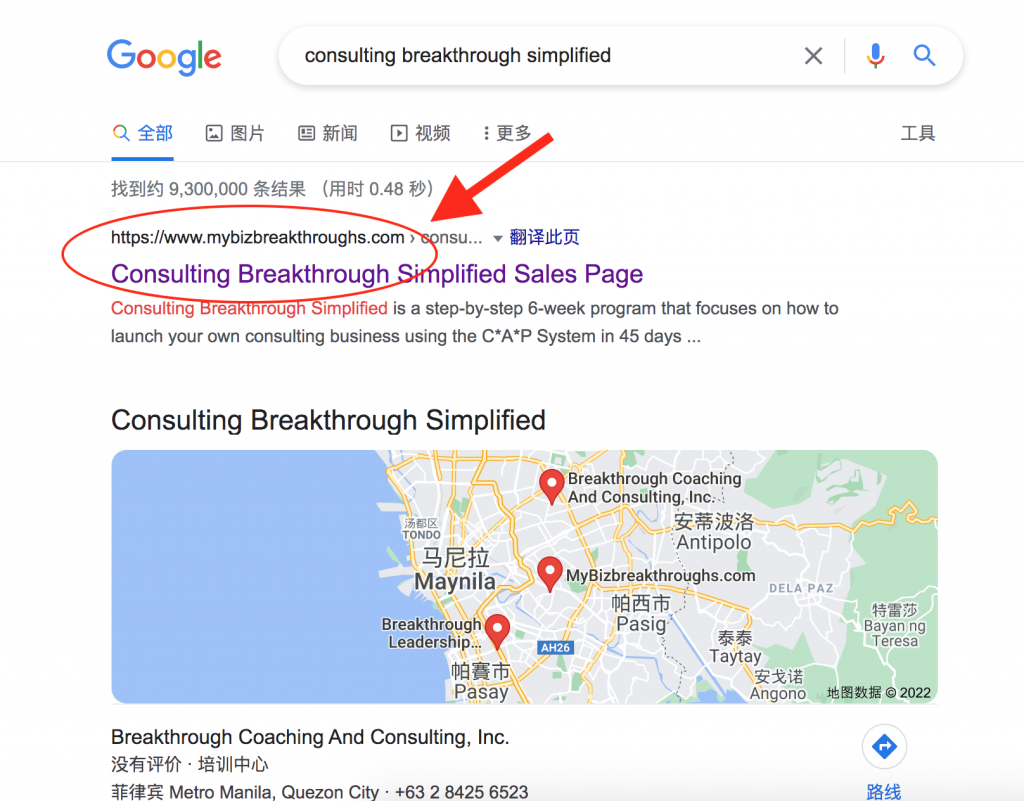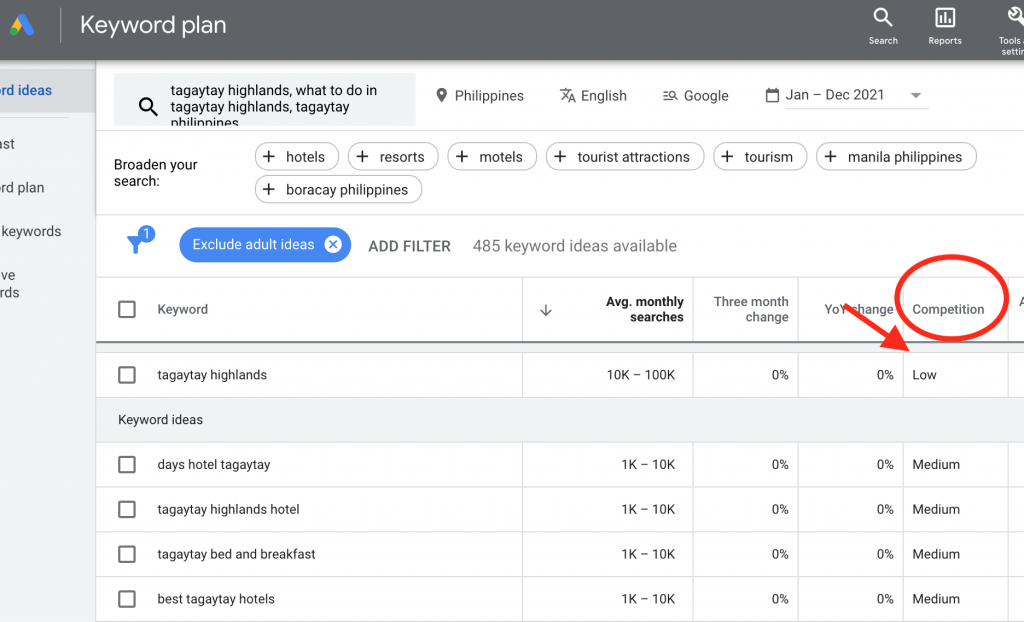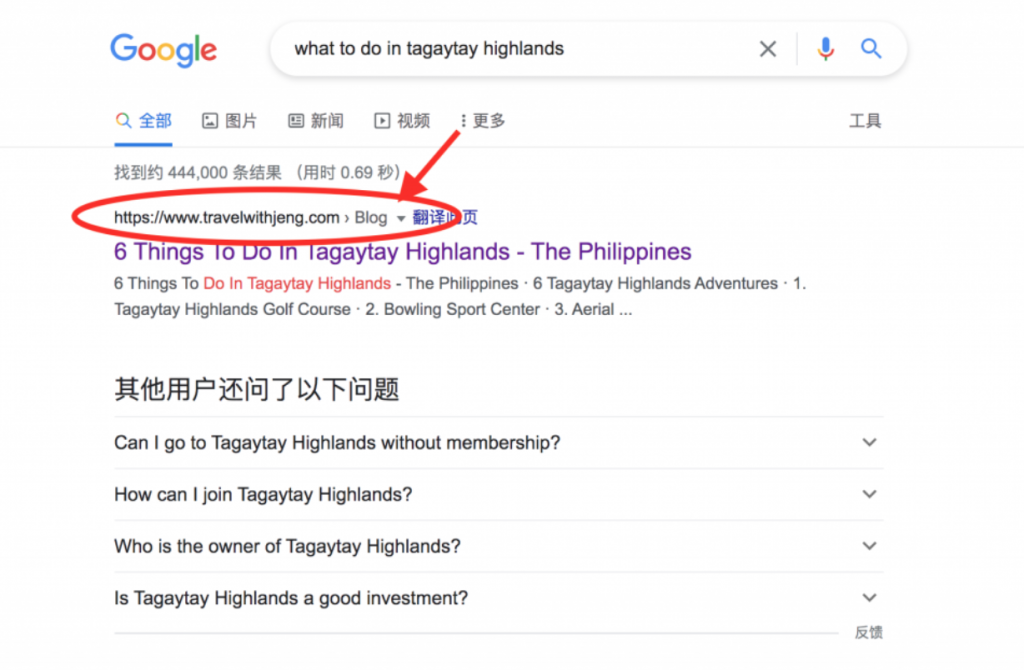Search Engines 4 Best Practices To Avoid Hiring SEO Agency
Search Engines best practices that you should know to show up your business on Google’s first page.
You’ve probably wasted a lot of money on advertising without converting your traffic into paying clients? Or perhaps your website traffic is increasing, but no sales? Well, there’s good news, though. You don’t need to hire someone (unless you want to) to fix the problem.
Also, you don’t need to be an SEO genius to rank #1 on Google. In this post, I am going to show you some easy, but powerful search engine best practices that a non-techie (like me) can do to get your business to rank on Google’s first page results.
Want to publish your signature product & recruit an army of affiliates this year? Try this 30-Day Be Your Own Boss Challenge Today!
Search Engines Best Practices #1: Incorporate Your Keyword Into Your Domain Name
Does your domain name relevant to what product or service you offer?
Your domain name is your storefront and this is how you can create a presence on the web for people who are searching for your product on the internet.
Here’s the thing, if someone is searching for your product or service in Google and your business cannot be found on Google, then you are missing money on the table.
For example, let say if someone types the keyword phrase “Consulting Breakthrough Simplified” on Google Search Engine, you will see (refer to below screenshot) the MyBizbreakthroughs website ranked #1 on Google’s first page.
Incorporating your keyword into your domain name is one of the tricks for search engines optimization.
Now, if someone landed on my website they will go through different stages of my sales funnel. A prospect journey might differ from one another depending on the stages inside your marketing funnel. And when you incorporate your keywords strategically into your domain name and create search-friendly product pages, then this is how you can build your own passive income using the power of search engines.
Relevant keywords help users find you in search engines and they can easily identify what you do at a glance.
For example, I incorporated the keyword “travel” in my TravelWithJeng.com website domain name and the keyword “breakthrough” for this MyBizBreakthroughs.com website.
Figure out what keyword you want to incorporate into your domain name and also it’s important to remember that in order for your website to make you money, you need to create your search engine-friendly content for your target blog audiences.
Search Engine Best Practices #2: Use Google Keyword Planner
Use Google Keyword Planner to help you find profitable keywords that are highly relevant to your business.
You can use Google Keyword Planner for free. All you need is to create a Google Ads Account. Do not worry, you do not need to spend any money in opening a Google Ads Account, our aim is to only find your profitable keyword to incorporate it into your domain name, blog topics, and create a search-engine-friendly product pages.
There are several keyword research tools for SEO that you can explore such as:
Ubersuggest of Neil Patel. This is a free tool that offers keyword suggestions, search volume, and more.
SemRush is a complete SEO tool suite that will totally help you improve your site content to increase search rankings.
Ahrefs is another all-in-one SEO toolset.
Search Engine Best Practices #3: Look For Keywords That Have "low competition"
Once you opted to use Google Keyword Planner, you can get keywords ideas that can help you reach people interested in your product or service. All you need is to enter your keywords or keyword phrases related to your business.
For example, I use “Tagaytay highlands” as my keyword phrase in one of my travel website blog posts.
Low-competition keywords are keywords that can help you rank on search engines without much effort. Definitely, you want to find as much low-hanging fruit for your SEO strategy to save you time and money. Low competition keyword is where you find your best opportunities to start getting organic search traffic to your site.
Search Engine Best Practices #4: Optimized Your Blog Post For SEO
Before you start a blog, you need to figure out what topics you’re going to consider in your posts. It’s going to determine the entire search engines strategy of your entire business system to work smarter and not harder.
Then, write a blog content that is search engine optimized because you want to make your website more visible to people searching for it in search engines like Google to find your product or service.
This is how you can rank your business organically on the search engines results page. See the below screenshot where my travel website ranked #1 on the first page of Google.
Final thoughts
When people are searching for a product or service online, internet users are more likely to choose one of the top three websites that the search engine shows them.
And if your website is ranked #1 on search engine results, this is how you make your potential customers more likely to click over to your site and bring them to sale conversions.
Search engines optimization will help you improve your online visibility, build your brand, and gain more opportunities to acquire more customers in your target market.
If you’re stuck or probably switching business ideas all the time and never make progress on your business, be sure to try this 30-Day Be Your Own Boss Challenge to help you organize, plan, and publish your own signature product and recruit an army of affiliates this year!
📌Pin me for later!
More Breakthrough Resources:
How to turn your expertise into income?
Try this 30-Day Be Your Own Boss Challenge to help you build, be in control, and automate to thrive in your business this year.
How to attract high-value coaching clients?
Check my 4-simple steps inside my free online masterclass.
How to crush your short-term and long-term goals?
Check my design your year kit and become who you want to be.
How to find your life purpose?
Check my “IKIGAI” action planner template to help you discover what career or business path that suits you.
About Jeng Cua
After borrowing her lifestyle living paycheck to paycheck, this #WFA (Work From Anywhere) mom wouldn’t let anything stop her from chasing her dreams. Her mission is pretty simple – to help burnout professional mommies to create and implement their business system to be their own boss and maximize their income without any fancy office!





